Grindadráp: Ritual of Blood and Memory
In the quiet waters of the North, tradition and blood meet in a dance as old as time. The grindadráp, both revered and reviled, beckons us to witness the raw bond between survival and sacrifice, in a world grappling with nature’s delicate balance.
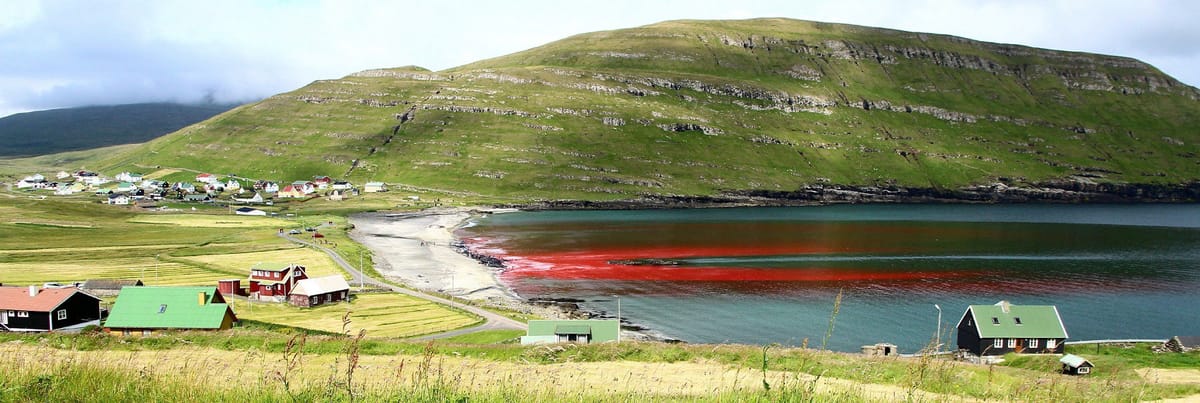
Blood Tides in the North
In the cold waters of the North Atlantic, ancient rituals converge with modern realities. Every year, the Grindadráp returns to the shores of the Faroe Islands, an event where the sea and land meet in a dark symphony of life and death. The waves carry more than water—they carry echoes of the past, of pilot whales and dolphins herded into the shallow bays, where their fate is sealed in blood and salt.
In 2024, the tides have risen again. Over 500 cetaceans have already been claimed by this ritual, the largest of its kind in Europe. What began as a practice born of survival has evolved into something more complex, where the tradition of the hunt clashes with the growing awareness of environmental ethics and the looming extinction of these creatures. The waters churn not just with the movements of whales, but with the friction between cultural heritage and modern conscience.
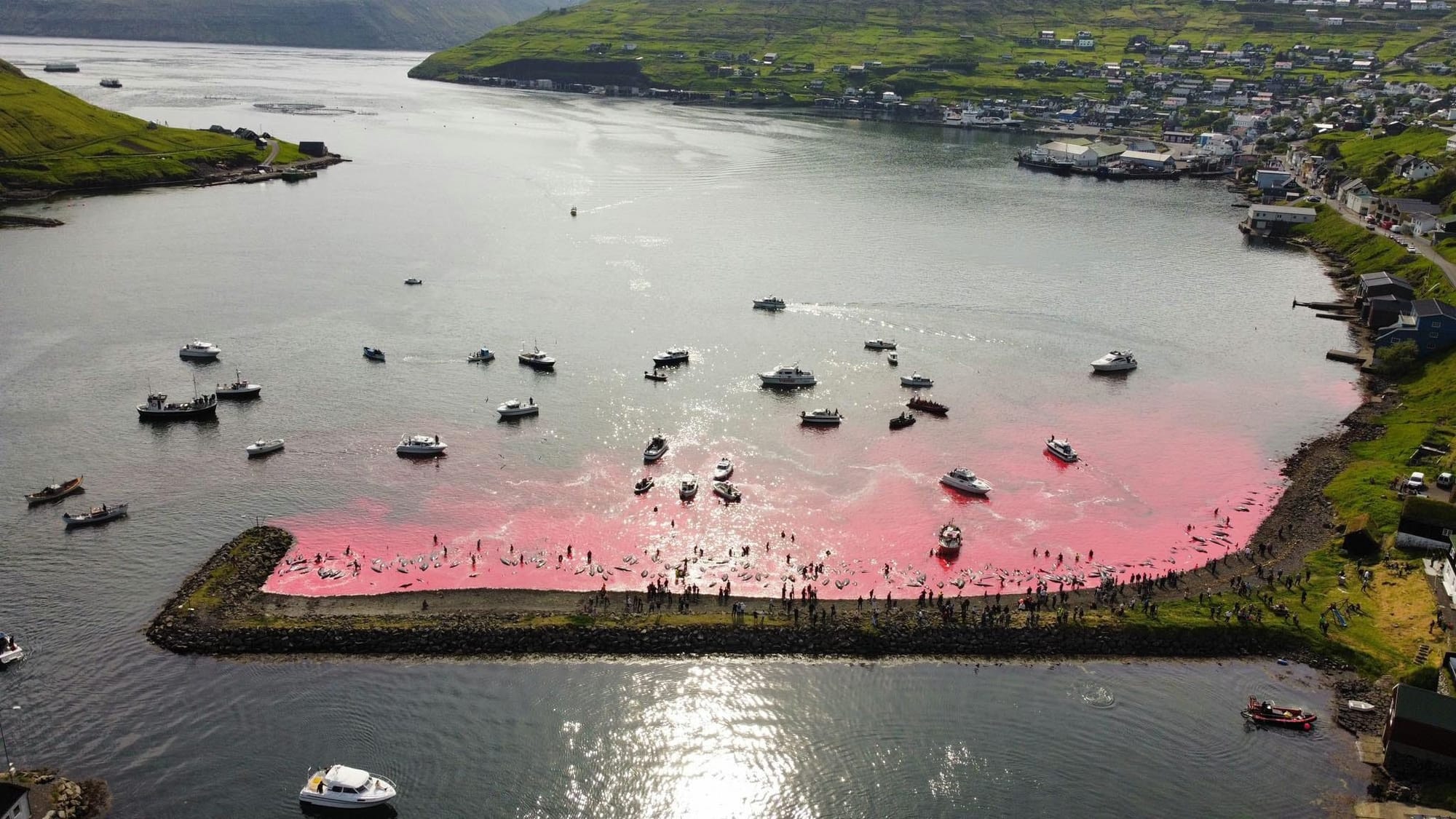
The Convergence of Past and Present
The Grindadráp, with its roots stretching back to the Viking Age, is more than a hunt—it is a tradition that binds the Faroese people to their ancestors. For centuries, the sea provided them with sustenance in the harsh environment of the North, where survival was often a delicate balance between man and nature. Yet, as the world has shifted, so too has the meaning of this practice.
Today, motorized boats and sonar technology have replaced the simple vessels of the past, and the hunt, once vital, now seems an echo of a time long gone. The knives that once symbolized necessity now cut through the flesh of intelligent, social creatures for reasons far removed from survival. But as the whales are driven into the shallow waters, their cries silenced by the weight of tradition, the sea becomes a witness—a graveyard of lives lost to the relentless march of history.
The Hollow Victory of Tradition
In the shimmering reflection of the Five of Swords, the Grindadráp reveals itself as a hollow victory. The act, once tied to survival, now stands as a haunting symbol of triumph at a steep cost. Each life taken in these blood-soaked waters carves a deeper scar into the soul of the Faroe Islands—a place where the past refuses to be forgotten, even as it fades into the tides of the modern world.
Some Faroese defend the practice, clinging to the belief that the whale meat sustains a connection to their ancestors. But in truth, this meat is now tainted by the poisons of the present—mercury and PCBs have infiltrated the flesh, rendering it dangerous for human consumption. The whales, once seen as a divine gift, now bear the marks of a polluted ocean, making their slaughter a cruel reminder of a world teetering on the brink of collapse.
And yet, the ritual continues. For some, like the fisherman Jákup, it is a rite of passage, a necessary assertion of identity against the encroaching modern world. "Don’t tell me killing whales is wrong when you eat hamburgers and live off industrial farming," he says, his words steeped in the tension between tradition and progress.
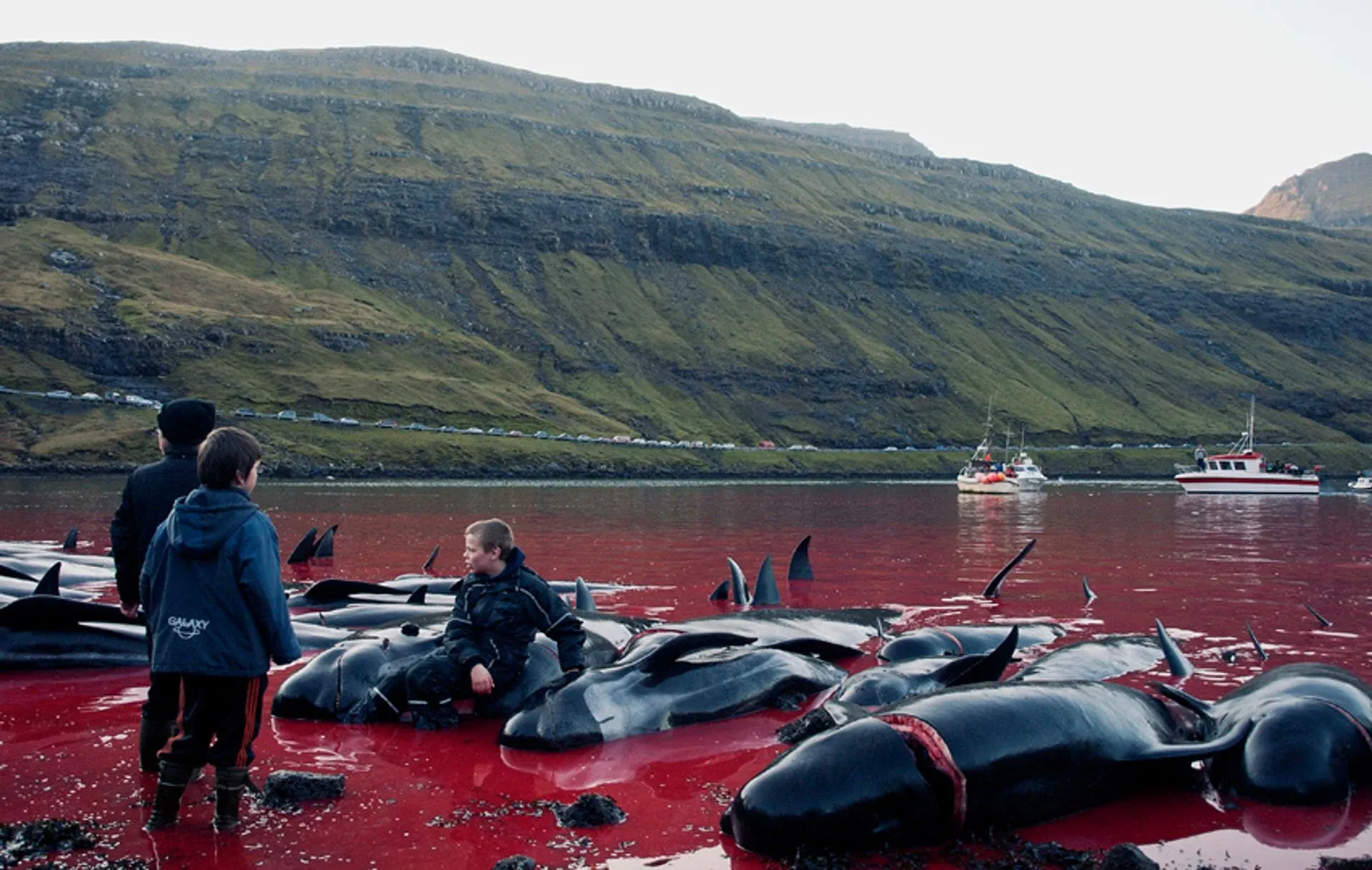
What the Ocean Takes, It Cannot Return
In the modern era, the Grindadráp is more than a cultural battleground; it is a stark reminder of what is at stake. The pilot whales, who swim through the vast expanse of the North Atlantic, are threatened not just by the blades of hunters but by the broader forces of climate change, overfishing, and ocean acidification. The ritual that once tied the Faroese to the cycles of nature now feels out of place in a world where these cycles are rapidly breaking.
Sea Shepherd, an international organization known for its direct action tactics, has long opposed the Grindadráp. Their ships have patrolled the waters of the Faroes for years, documenting the blood-stained waves and the slaughter of hundreds of whales. In 2024, they return once more, their presence a reminder that while the Faroese may hold on to their traditions, the world is watching.
But as the waters still and the cries of the whales fade into the distance, the question remains: what has truly been won here? The blood of the whales will wash away with the tides, but the memory of their deaths, like a shadow on the water, will remain—fractured, distorted, but impossible to erase. In the end, the ocean takes, but it does not return.
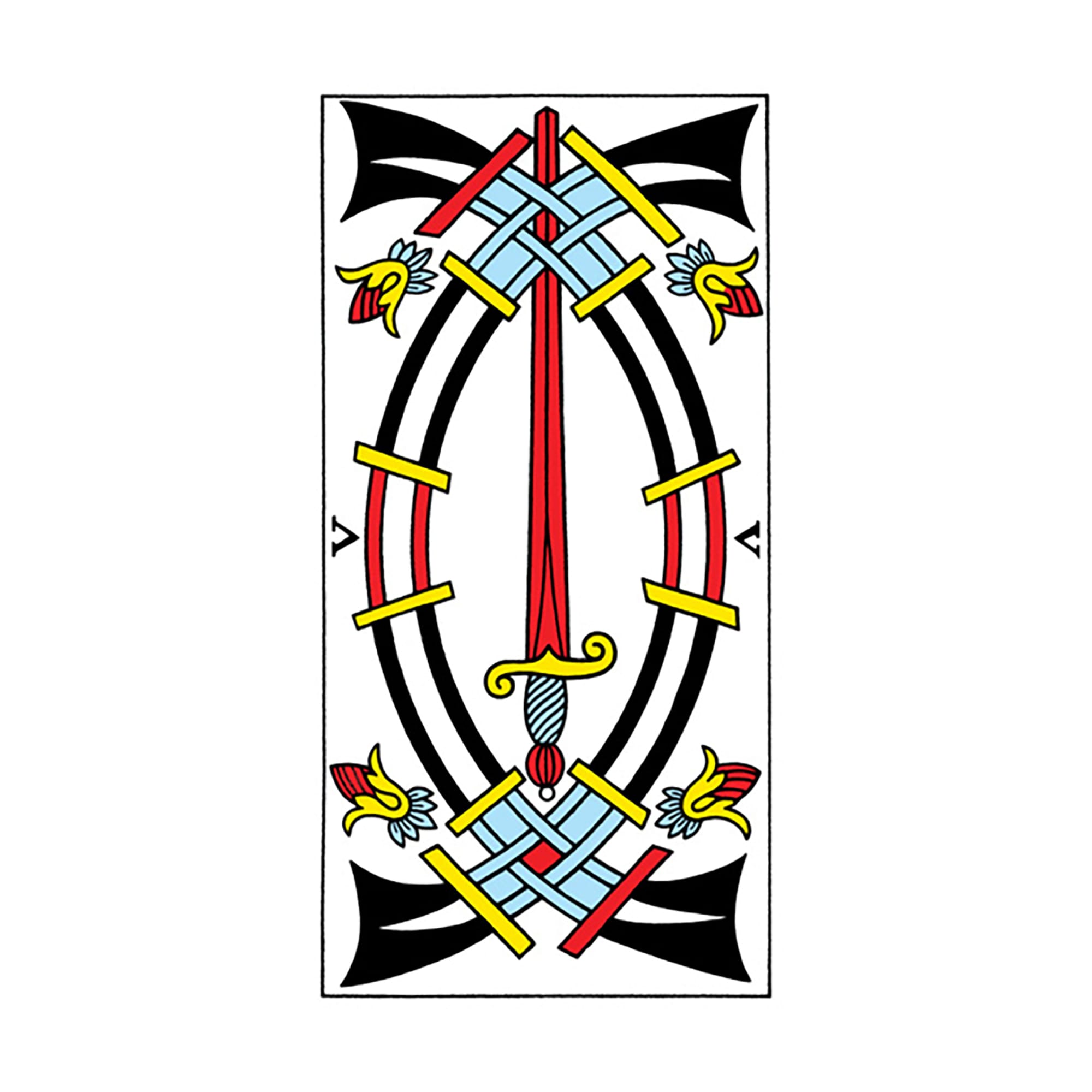
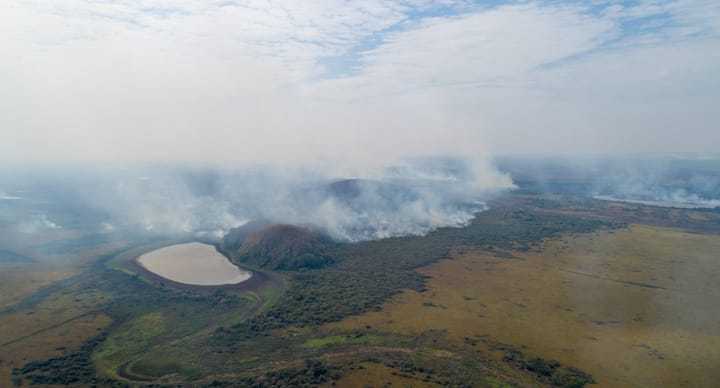
Comments ()